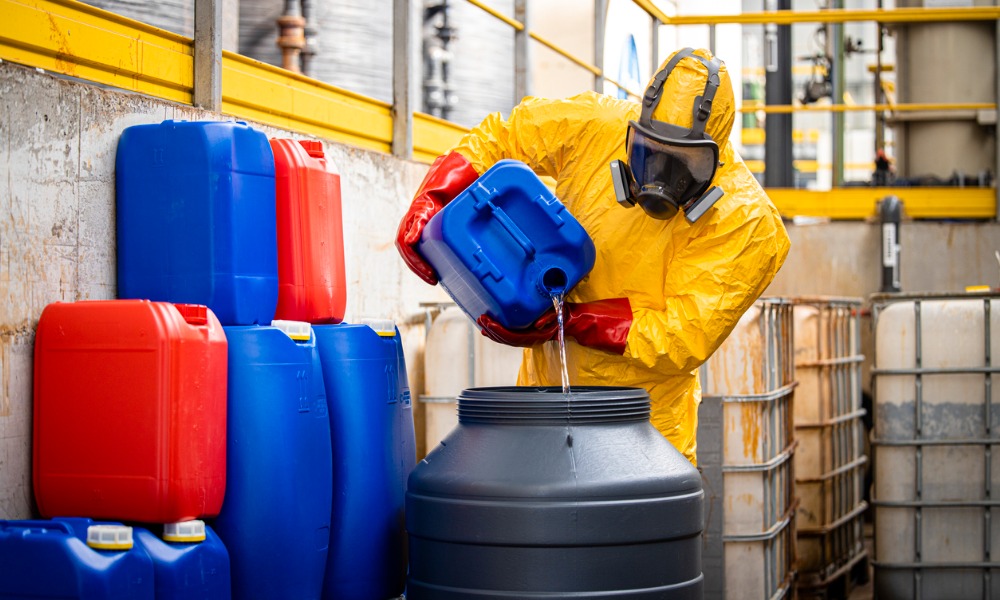
New framework includes phasing out some of the most harmful chemicals used at work, ILO says

A new global framework that aims to protect workers from the risk of hazardous chemicals was adopted at a United Nations-organised conference last week.
The Global Framework on Chemicals (GFC), administered by the United Nations Environment Programme (UNEP), was adopted at the International Conference on Chemicals Management held in Bonn, Germany.
"Thanks to the leadership of Germany, the hard work of negotiators, and the spirit of compromise, the world has agreed the Global Framework on Chemicals – backed by a High-Level Declaration that provides political impetus to drive the deal's implementation," said UNEP executive director Inger Andersen.
The aim of the GFC is to prevent or minimise harm from chemicals and waste to protect individuals, including workers. This includes phasing out of some of the "most harmful chemicals used in the working environment," according to the International Labour Organisation (ILO).
"This is an important step forward. The widespread use of hazardous chemicals impacts the safety and health of workers, the public and the environment, and threatens the broader goals of decent work and social justice for all," said ILO director-general Gilbert Houngbo in a statement.
"By prioritising the sound management of chemicals and waste, within the context of a just transition, we can protect workers, green our economy, while supporting decent work opportunities."
According to the UNEP, the framework is based around 28 targets that aim to improve the sound management of chemicals and waste.
The ILO said it was to negotiate and secure critical text in the documents to promote labour sector engagement, including a direct reference to international labour standards.
The International Trade Union Confederation (ITUC) welcomed the GFC's adoption, underscoring its benefits for workplace health and safety.
"This ground-breaking agreement gives unions the opportunity to push for safer, healthier work in collective bargaining at the workplace and sectorally, in national and international laws, in public and private investment decisions, in public procurement and in trade, with due diligence at the heart of decision-making," said ITUC deputy-general secretary Owen Tudor in a statement.
Hazardous substances kill around 1.1 million workers worldwide annually, according to the ILO. This is equivalent to 2,900 employees per day.
Toxic chemical exposures are also responsible for "more than tens of millions of working days lost to disability, ill-health, or premature death," it added.
In addition to its human impact, the economic consequence of hazardous chemicals at work is also estimated at 2.1% of the annual global GDP, according to the ILO, which warned that these statistics could go up given the growing use of chemical substances in workplaces.